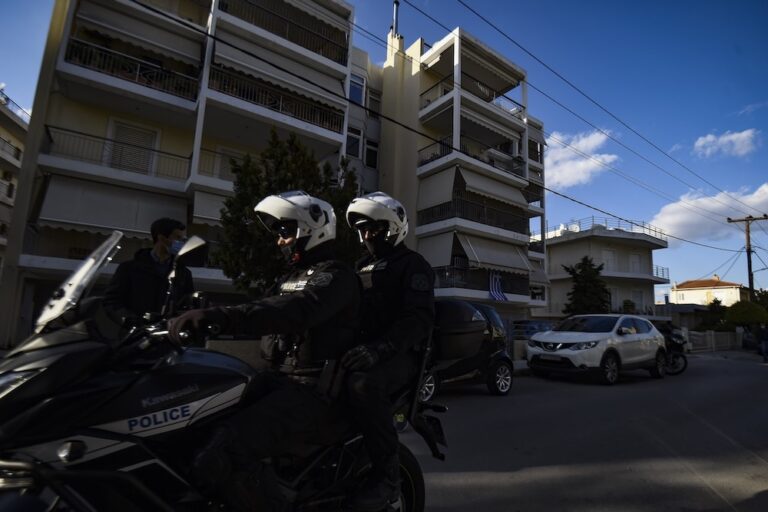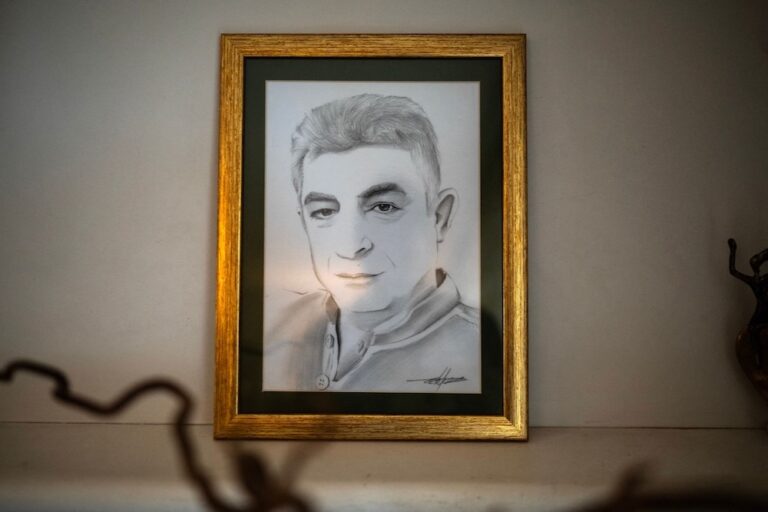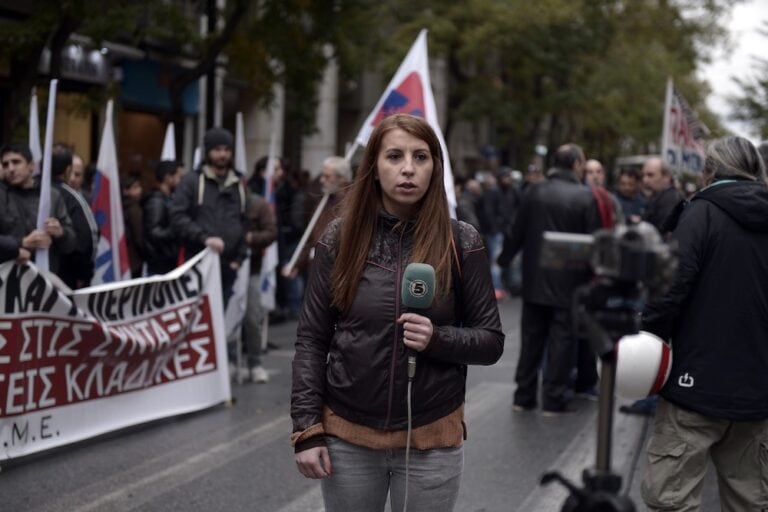(GHM/IFEX) – On 13 July 1998, the “Single-Member First Instance Court of Salonica. Procedure for Summary Measures” (Judge Nikolaos Tsakos), with its 18134/1998 Verdict, ordered “the removal from the “Dictionary of Modern Greek Language”, in every future reprint or edition (…) of the entry “Bulgarian (…) 2. (abusive) the follower or player of a Salonica […]
(GHM/IFEX) – On 13 July 1998, the “Single-Member First Instance Court of
Salonica.
Procedure for Summary Measures” (Judge Nikolaos Tsakos), with its 18134/1998
Verdict, ordered “the removal from the “Dictionary of Modern Greek
Language”, in every future reprint or edition (…) of the entry “Bulgarian
(…) 2. (abusive) the follower or player of a Salonica team (mainly PAOK).”
**Updates IFEX alert of 27 May 1998**
It also threatened the book’s author (Professor George Babiniotis) and
publisher with a fine of 2,000,000 drachmas (US$6,500) each, and also
threatened the former with a month’s detention if the order was not applied.
The court ruled that the entry in question offended the personality of the
plaintiff (lawyer and elected City Councillor of Salonica Theodore
Aspasidis), and that “it creates confusion about the national origins of the
players and the followers of PAOK (a soccer team based in Thessaloniki,
northern Greece) and more generally the Macedonians.”
The verdict stated that the abusive meaning should not have been included in
the dictionary as its use is occasional and not sustained. It was based on
the following explanation, quoted by the judge in his verdict:
“A good dictionary does not simply record linguistic reality but also aims
at instructing the reader. We turn to it to learn. For that reason,
linguistic reality recorded therein, i.e. the use of a particular word, must
be the one that has in some way been consecrated in Greek society, that is
has been generalized and sustained. Occasional or isolated use is not
enough. The aforementioned word ‘Bulgarian’, in its abusive meaning, has
been probably used by an insignificant portion of football fans from
Southern Greece, in fact more as a slogan than with the meaning of the
word.” (see M. Stathopoulos, ‘A dictionary between Justice and Scholarship’
in the ‘Eleftherotypia’ daily, 15 June 1998).
The Stathopoulos article is indeed accurately quoted in the verdict. GHM
needs to regrettably mention that Professor M. Stathopoulos is the Chairman
of the newly formed “National Human Rights Commission” in Greece and of the
non-governmental organisation “Citizens Against Racism.”
A second “Application for Summary Measures” against that dictionary was
heard on 20 July 1998, by a similar Salonica court, for the entry of the
abusive meaning of the word “Pontic.” “Pontics” is a pejorative term which
refers to Greeks from the Black Sea who were “repatriated” at various times
during the 20th century.
The only positive development was the motion to the Supreme Court by its
Prosecutor, Panayote Dimopoulos, released on 24 July 1998, asking for the
cassation of the verdict. In this motion, the Prosecutor reverses the
verdict’s rationale, in relation to both the offense to the personality of
the plaintiff and the criteria for the entries in the dictionary.
Furthermore, P. Dimopoulos added that the Court made a “spurious and
erroneous interpretation of the related articles of the civil code, instead
of defending freedom of expression and scholarly research.”
On 24 July 1998, Greek Helsinki Monitor wrote to the President of the
Supreme Court stating its disagreement with the verdict’s rationale and
interpretation of the laws, and requesting that the Supreme Court instructs
the lower courts how to avoid such erroneous interpretations which shatter
the credibility of the courts in Greece.
Recommended Action
Send appeals to authorities:
Rights, Article 19 of which guarantees the right to freedom of expression,
including the right to seek, receive and impart information and ideas of all
kinds
Appeals To
Mr. Costas Simitis
Prime Minister of Greece
Maximou Megaron
Athens
Fax: +30-1-6716183
Please copy appeals to the source if possible.


